
Advice from Audio Moms
We have compiled blogs about being a Mom in Audio

We have compiled blogs about being a Mom in Audio
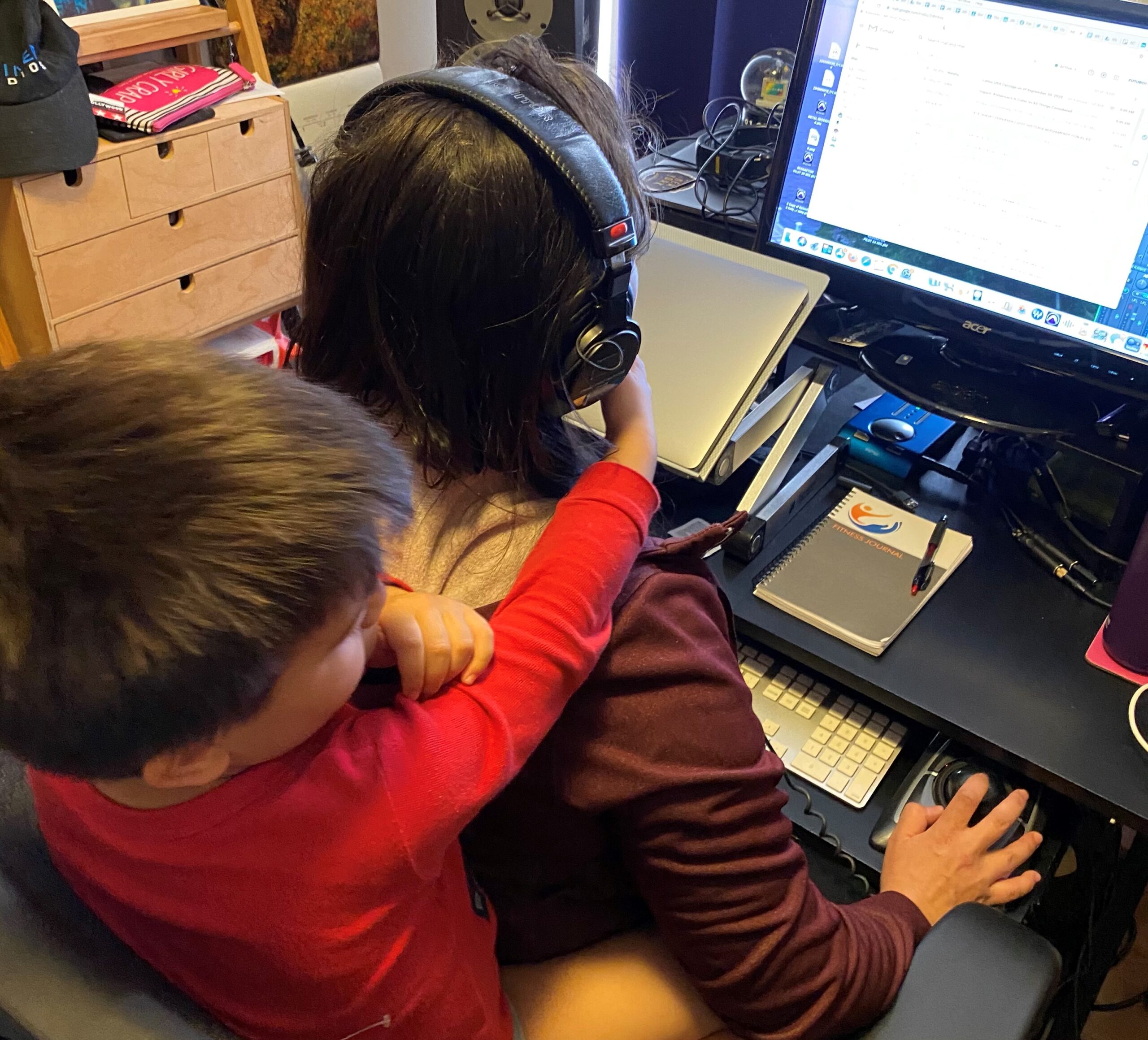
I remember when I sat down in the director’s office of the work-study I was doing. The director happened to be a woman. I was 26, with no prospects for kids anytime soon, but knew I wanted a family eventually. Yet, I had no idea how I was going to get there since I was always working. So I asked her flat out, how do you have a family, or a relationship, or anything in this business. And her answer was that it was hard. I don’t think I fully understood what that meant, and now, on the eve of 40 with 2 kids, I guess I’ll do you a favor and give you more details so you can make your own decisions.
First, I’m going to preface this by saying having kids isn’t for everyone, and that is 100% OK. But, if you were thinking about it, and thought you had to leave this crazy business because of it, here are some things to consider.
One of the most important things to think about is the myth that you have to have kids young. In NYC it’s normal to start having kids between 35-40. That whole thing about your eggs getting old isn’t exactly true like they make you think it is. I had my first at 36 and just had my second at 39. So you have plenty of time to establish yourself in your career, do all the things you want to do and then you can think about kids. There’s zero reason to rush.
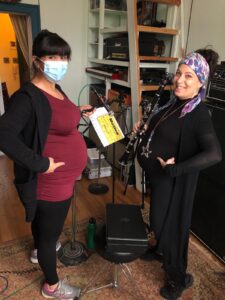 I used to do a lot of live sound, and I was loading in a show – carrying a heavy monitor across the stage – and I thought, this won’t be an option at 9 months pregnant (I wasn’t pregnant at the time). And it’s true, there are a lot of things you won’t be able to do, but there are so many things you can. If your body is used to doing things, then you can continue to do them when you’re pregnant. This is why someone like Serena Williams can win the Australian Open at 8 weeks pregnant. You just shouldn’t start a new routine when you get pregnant.
I used to do a lot of live sound, and I was loading in a show – carrying a heavy monitor across the stage – and I thought, this won’t be an option at 9 months pregnant (I wasn’t pregnant at the time). And it’s true, there are a lot of things you won’t be able to do, but there are so many things you can. If your body is used to doing things, then you can continue to do them when you’re pregnant. This is why someone like Serena Williams can win the Australian Open at 8 weeks pregnant. You just shouldn’t start a new routine when you get pregnant.
During my first pregnancy, I had a full-time job in radio but was also sound designing a musical for a performing arts high school in NYC. This fell during my first trimester, where I had terrible nausea and was exhausted. Know when to ask for help. I ended up bringing on a second engineer and passed off half of the tech days to them because I couldn’t manage the number of hours.
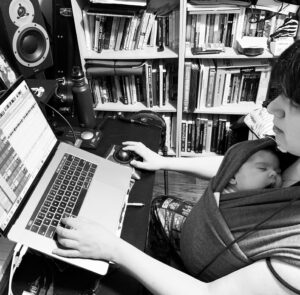 The first couple of months are kind of a blur. And there might be a ton of baby-wearing. If you’re lucky enough to have a job with maternity leave, take all of it. I always feel that because of the nature of our work, you rarely get a break, so do take the time to be with the baby. If you’re in a state that has some kind of state-paid leave, look into the rules and how to apply.
The first couple of months are kind of a blur. And there might be a ton of baby-wearing. If you’re lucky enough to have a job with maternity leave, take all of it. I always feel that because of the nature of our work, you rarely get a break, so do take the time to be with the baby. If you’re in a state that has some kind of state-paid leave, look into the rules and how to apply.
I had my second in the middle of recording an album for an artist. We plowed through tracking and editing during pregnancy which was already a challenge. Raced to the finish line to get her first track mixed before giving birth, and then ended up finalizing the mix about 2 weeks after my daughter was born. Probably not the ideal scenario since I was still healing, but sometimes you gotta do what you gotta do. The most important thing to consider here is that this artist was 100% OK with this because she wanted to work with me. She could have picked up and left to work with someone else while I had my maternity leave, but she didn’t.
But I also had to be realistic here, and I knew when to ask for help. I hired an assistant to help me get through some of the editing because now with two kids, I had to learn that I wasn’t always able to keep up with the pace and how many hours I could work.
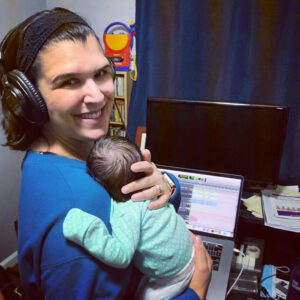 Studio culture is probably one of the hardest things when it comes to finding balance. I was working at a studio that had an artist come in and they were hotboxing in the control room. I was at the tail end of breastfeeding my first, and I didn’t know anything about the effects of marijuana on milk. But I was new. Was that a battle I wanted to fight? At the time, no. My son had just turned one, and I was only going to go ‘til one. So I stopped cold turkey because I didn’t have the energy to read about the effects and because I didn’t have the energy to speak up about it. And that was hard – because I felt like I never had a moment of closure. But, I remember at the time thinking, had my kid been smaller, and I wasn’t ready to stop – what would I have done? Or what if I was pregnant? Is studio culture ready to change to accommodate that? Maybe, maybe not.
Studio culture is probably one of the hardest things when it comes to finding balance. I was working at a studio that had an artist come in and they were hotboxing in the control room. I was at the tail end of breastfeeding my first, and I didn’t know anything about the effects of marijuana on milk. But I was new. Was that a battle I wanted to fight? At the time, no. My son had just turned one, and I was only going to go ‘til one. So I stopped cold turkey because I didn’t have the energy to read about the effects and because I didn’t have the energy to speak up about it. And that was hard – because I felt like I never had a moment of closure. But, I remember at the time thinking, had my kid been smaller, and I wasn’t ready to stop – what would I have done? Or what if I was pregnant? Is studio culture ready to change to accommodate that? Maybe, maybe not.
I think it’s important for us to support women no matter what their decision or outlook on motherhood is. I hate going to conferences and this question gets ignored as if it’s not a valid point – you don’t have to have kids, but for the people who do, it’s important for us to speak up and let people see it is possible. I’ve since met and seen many moms working in audio that make me wish I’d met them sooner – maybe I would’ve made different decisions. My kids are small, so I’m still figuring things out.
The conversation I had during my work-study was spot on. It is hard. But it’s also super rewarding. I love to hear my toddler ask to hear an artist’s song again, or just randomly start singing it. I’m wearing my second right now as I attempt to write this. Happy Mother’s Day to all you Audio moms out there. Keep doing what you’re doing.
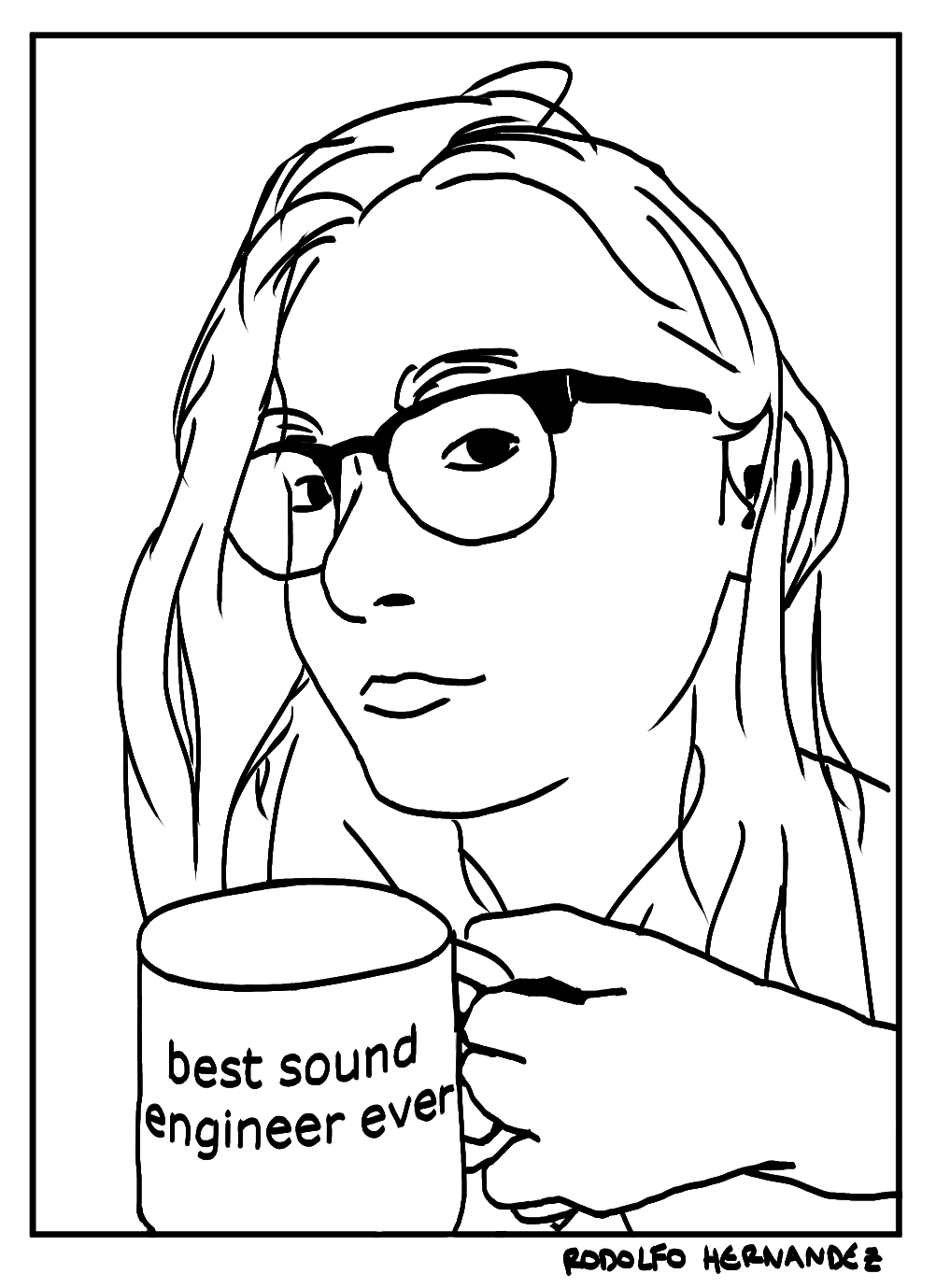
As hate against those who look like me has skyrocketed in the past year, and been largely ignored by the music industry, I’ve started to rethink my assumptions about how I can move through the audio world. If women make up 5% of sound engineers, then the percentage of women of color like me is even smaller. In my nine years in live sound, I have never crossed paths with another Asian-American sound tech, although I know we exist. The times that someone onstage has looked like me have been far and few between. I always thought I would have to be extra careful about my safety because of my gender, not because of my ethnicity. Clearly, that was naïve.
As strange as it feels to say, I am one of the “lucky” ones: nothing I’ve gone through has been bad enough to force me out of the industry. A friend of mine, who is also Chinese-American, had such a bad experience interning at Big Name Music Hall with a boss and coworkers that constantly asked him incredibly invasive, weird, and racist questions that he decided to stop pursuing a career in live sound altogether. I’ve experienced nothing so constant and pervasive. The worst environment I’ve been in was as at my first and only training at a production company whose manager went on a bizarre, semi-incoherent rant for several minutes about how racism doesn’t exist, and “the only racism” is green (money), which was triggered by a comment made about the Papa John’s Pizza we were eating.
Most of the racism I’ve experienced come in the form of the harassment most women face anyway, just with an extra racial component. The stereotype of Asian women as sex-hungry “dragon ladies” who exist only to serve white male pleasure is alive and well (just look at the coverage of the Atlanta shootings). So the assholes who aggressively hit on me and wouldn’t take no for an answer might throw in a reference to anime, hentai, massages, and happy endings, Japanese schoolgirls, or anything else that would make what they are saying that much more degrading. Another non-white friend and I found ourselves and our credentials excessively scrutinized at the few AES meetings we have gone to, compared to the other new faces at the meetings. The gatekeeping worked – I haven’t gone back. Moving from clubs and bars, where often there is no one able (or willing) to back you up, into the more structured world of larger music venues, where the touring crew probably know my coworkers and I am suddenly a friend-of-a-friend instead of a complete stranger, has helped cut a lot of this.
What never goes away are the offhand comments and assumptions. The negative ones are self-explanatory: assuming I don’t speak English or learned English as a second language, pressing me about “Where [I’m] really from” or asking “What are you”, arguing with me about whether or not I am a different Asian sound engineer who you worked within a city I’ve never lived in, being asked to confirm my citizenship by someone literally holding my U.S. Passport when filling out paperwork. Being called ‘China doll’, having someone proudly explain to me how they can tell the different types of us Asians apart as if that deserves my congratulations and gratitude. The supposedly complimentary ones, often based in stereotypes like the model minority myth, are equally as gross: saying that they’re glad I’m Asian because I’ll work harder, or assuming I can do a quick calculation on the spot because I’m Asian, and therefore good at math. And of course, there is the classic ‘Oh I love your culture!’, which is quickly followed by a bunch of half-baked romanticized stereotypes that probably aren’t even from the right country.
Overall, the biggest issue I’ve run into in my career is tokenism: being paraded or held up for being a person of color as proof of diversity. It was particularly bad at my first job, whereas the only non-white sound engineer I was constantly pressured to participate in the marketing campaigns, fundraising events, tabling, and basically become the face of the audio program. There was a hard push to show how diverse we were as an organization when we really were not. A single person cannot be diverse! I declined until I was eventually left alone, but it was extremely uncomfortable to go through, especially as a high schooler.
Recently it’s resurfaced again, in a slightly different form. I have become the token woman/minority audio engineer success story to a white coworker of mine, who I barely even know. This person has tagged me in social media posts about how inspirational it is to see a non-white woman in audio, and has privately sent me several long messages of solidarity and apology over inconsequential things the venue has done. Did I have to ask my venue to put STOP AAPI HATE up on the marquee? Yes. Was it painful or traumatizing that they didn’t put it up automatically and I had to make that request? No. It was moderately annoying at best, and it’s insulting to decide that it was something deeply distressing on my behalf. To continue doing so after I have explained that to you that this not the case at all is ridiculous. Removing my agency from the situation and operating under the assumption that it is the duty of white people to swoop in and save me, is not ‘being an ally’. It is an unhelpful and infantilizing statement that paints me so delicate that something as simple as requesting my venue speak out is a shattering ordeal.
Flattening me into a single dimension, whatever the intention, is not okay. It takes the complex, whole person that I am and reduces me down to be defined solely by my race. It doesn’t matter how much solidarity you claim to have if you can’t see past the surface of my skin. Especially at work, the body that I am in should come second to what really matters: the fact that I am a great sound engineer.
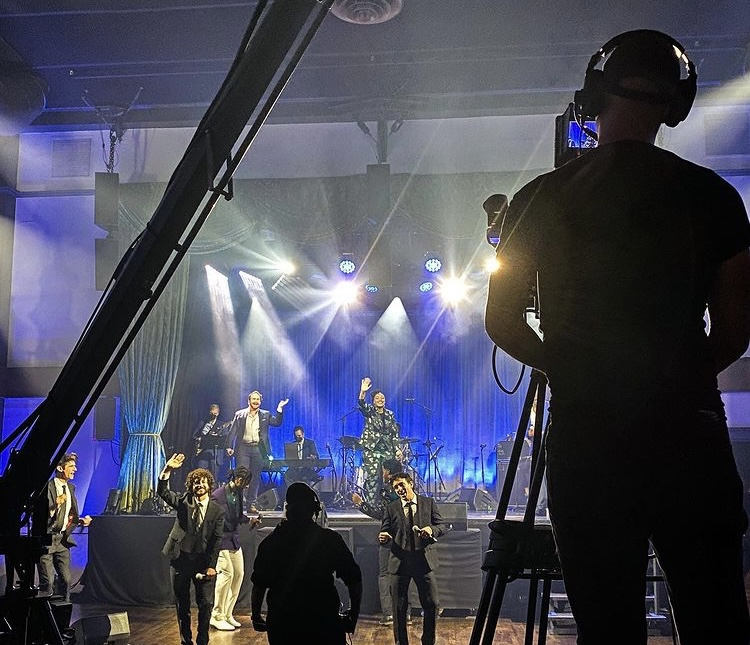
The event I want to talk you through today is another private rental. This was the venue’s first video live stream since the pandemic began. Generally, events like these are pretty rare for us. All systems are set up to enjoy a great experience in the moment. Looking ahead to the future of events, live streaming is going to be a great tool to reach a large and diverse audience, and promote accessibility to more patrons. We look forward to the future of these events and are excited to share all that we have learned from this broadcast.
To achieve the video broadcast our client was after, hi-speed Internet service is required. In our case, a separate and dedicated Internet hardline was put in by a service provider, which could be used exclusively for live streaming. The goal of this event was to broadcast approximately 60 minutes of a well-rehearsed “backstage on Broadway” experience involving show tunes sung by loveable Broadway stars. The streaming host was Chase Private Client, and this was a way for the company to give back to their customers, in lieu of the Broadway and live events shutdown.
Chase hired a team of producers to achieve their vision. The producers then work within a set budget and hire in the talent, subcontract the video, audio, and lighting, and scout the location (which is where we came in). The job of the venue was to provide a covid-safe location to film, assist with security, and supplement production needs. After the completion of the initial advance, it was determined that the house would provide power, use of our lighting rig (with a supervising LD), use of atmospherics (including our in house haze machine), use of our monitoring systems (including an engineer) and use of our front of house desk for a broadcast mix. House was also in charge of fabricating a staircase for the stage. It was clear from the start that I would be stretched thin on this event, so I put a network of systems in place to ensure all departments, including myself, could have necessary support if things were not running on time, or if any issues arose.
The producers of the event were fairly new to the world of Broadway and concert production. The more advances you go through, and the more time you spend on the job, the more you can catch the nuance, and know what questions to ask, to give you a clue as to what to expect. It was much easier for me to deal with each department and their needs separately, rather than having the producers act as a middleman. Each event is different in this way, and can also apply to tours and Tour/Production management. You do not need to know every detail of every aspect of the production/tour, but know what you need to make your job easy. PMs- have your designers/department heads type up riders, plots, and inputs/instrument lists that speak the language directly to those that need it. TMs- same thing, have all of your riders and show needs together before you hit the road. If questions come up, do not hesitate to ask the person the question is intended for. It is less important for you to know all the answers, than it is for you to know who to get the answers from.
The Covid Compliance team on-site was incredible. The testing process, a little less so. This client had our team schedule virtual testing, with testing kits that were mailed to us, and needed to be mailed back. For me, this was an easy process, but I recognized it is also problematic and prohibitive. First, all those being tested needed to have access to a personal electronic device capable of handling video conferencing, they needed to be fluent in English, have a permanent home address where they can receive mail, and needed to be able to access a UPS mailing point. I would not recommend this system unless you have pre-screened all employees and they feel comfortable to test in this way. In-person testing at a fixed location near the venue or area of work is preferred, with language assistance available. Our venue is currently working closely with Spotlight Medical to ensure fair, effective, and accessible testing for all of our staff, once we begin our own events.
The audio team was a broadcast engineer, (incredibly talented, extremely intelligent, and long lover of analog who I greatly enjoyed working with) and an RF provider with tech for all 3 days, who doubled as an A2. He was another great talent, who gave me a laugh as I watched 16 Shure RF mics go into foil containers typically used for leftovers. All in the name of Covid Compliance. House supplemented staff with a monitor engineer. In hindsight, a backline tech/stagehand would have been extremely helpful.
The lighting team was fantastic and old pals. They consisted of a designer/programmer, grip, and lighting vendor with tech for all 3 days. House supplemented with our LD, doubling as an electrical supervisor. One fixture would be hung, and the rest were ground supported on pipe and base in the balcony wings. The designer chose to use intelligent fixtures for all of his design, and stay away from our incandescent/conventional lighting. This allowed the designer to color and flicker or pulse width modulation correctly using the console.
The event slated two days of load-in, setup, and rehearsal, and 1 day for last touchups and broadcast. My biggest concern was the analog desk and outboard. I feared after 12 months of lying dormant, things would not work. At this point, my brain has forgotten about the funny little nuance of the desk. The channel with the scratchy fader I needed to replace, the auxiliary buss that behaves funny, the gate that does not gate, etc. There is such a joy of analog, of touching buttons and faders and mixing with your hands, but they require a dedicated and consistent level of maintenance and care, which you can imagine becomes difficult when you are a sweaty, smoky, packed rock club that sees a different show every night, and your responsibilities encompass more than audio. On our first day with the broadcast engineer, I was immediately put at ease. He saw the joy that I see in the desk and had the immense level of experience and knowledge to not only make it sound great but even open up and clean some faders. Prior to load in, I had managed to clean all 1800 of the knobs on the desk but ran out of time for the faders. I welcomed the assist.
Lighting and video loaded in first, audio and backline followed after that. The first day ended with setting the backline, pinning the stage, and getting the bulk of the lighting programming complete. The video team was able to get set up and a majority of their cabling was completed.
Consisted of even more programming and our first run-through of the performance. We were given start and stop rehearsal, and a direct cue to cue which was about 75% of show ready.
Started off with a bit of a hiccup from our end. I do my best to make sure our venue staff has all that they need to succeed at their job- resources, time, support, etc. Even still, I can forget that we have been out of practice for a year, and we are navigating new waters from the usual rock show. Our Monitor engineer, unused to theatre cue to cue style mixing and speaking on coms, found himself in the weeds. Unprepared for how to quickly and effectively use snapshots, he lost his work from the day before. The A2 and I quickly rallied in support of the monitor engineer to go through the program ahead of talent, and make sure the wedges were all dialed in, cue to cue. I am sure by the end of it our engineer became a pro at snapshots. Unfortunately, it only reinforced his lack of interest in theatrical mixing.
This was another note to myself to hire effectively and hire people who are excited by the event itself, not just the mixing aspect, or the need for a paycheck. We spoke at length about his experience afterward, and throughout it all, he handled the situation calmly and with a great attitude. The last rehearsal before the broadcast was rock solid.
Come the broadcast, I was huddled with the A1 watching a display monitor, hoping there were no streaming hiccups or issues on our end. Sure enough, the show looked beautiful and I only wish I could have heard the mix! It has been 14+ months since I listened to a mix from an engineer I love, on the Midas desk. Nonetheless, it was extremely nice to work together and talk shop, as well as share our love of motorcycles.
Loadout happened in record time, unfortunate for our dinner break which we worked right past but grateful for a sigh of relief that everyone made it out of the building safe and sound, after a great few days of work. We started on stage- breaking down backline, audio, and lighting, before moving to the balcony and front of house. This schedule gave the video and communications team a chance to organize and break down and left space for us to finish our loadout without interruption or breaking compliance.
As of now, we are still taking it easy at Bowery, and remaining cautious to reopen. It is not yet beneficial to us, or to the health of our patrons to open just yet. We are going to continue to focus on some important upgrades, study the data, and figure out a way to make artists, staff and patrons safe and excited to come back to music again. I cannot wait to share all of our new projects with you, so keep tuning in, and stay safe!
My Take on Line-By-Line Mixing for Theatre

My close friend and bandmate, Johnny Angel, introduced me to Meg Lee Chin’s music almost two years ago. But it was only recently that her name kept appearing across the Facebook audio groups as a result of the name-change petition against Gearslutz. With new attention upon the company, Meg Lee Chin posted (see below) something about the company which caught many off-guard: Meg had in fact built, developed and co-founded, “Gearslutz” and wanted to inform the public of her role in creating its popular forum.
For a bit of context, Meg Lee Chin is an American singer, songwriter, audio engineer, producer, writer, and activist who lives in London. She is an early pioneer of DIY (do-it-yourself) recording and in 2000, she was the first DIY producer to be featured by EQ Magazine, one of the foremost audio publications at the time. She has also been a member of supergroup Pigface, a band with over 100 rotating members including Martin Atkins and Trent Reznor. Signed to Invisible Records for five years, she left the label in 2002.
Chin is a beloved artist in the industrial underground. She has released various albums and tracks as a solo musician and producer. Freed from the constraints of a label, Chin’s work became increasingly political and in 2019. True to her DIY ethic, she sporadically released tracks with accompanying music videos and even a documentary—all of which were entirely self-written, recorded, and produced. For example:
In 2014, she released “I Can’t Pull the Trigger,” an anti-war song and music video using Vietnam-era war footage.
In 2019, she released both a music video and accompanying full documentary which provided explanation to the song, “England’s Mask.” It warns of Britain’s danger in losing its status as a leading creative superpower across the arts.
In 2020, she released a music video of “Venus,” a call-out for a new era of feminine power. That same year, she released her “Celebrity Saviour” music video, a damning indictment of celebrity culture.
Johnny and I were honored to catch up with Meg Lee Chin last month in an interview, a link to which can be found below, where we learned more about her life and work as an artist and about her involvement with “Gearslutz.” Her story can be read in her own words at GearWarz. She is also in the middle of developing a new mobile app called “Talkosaurus,” and writing a book about this and many other topics important to her and her life in music.
Inspired by Meg, Seattle engineer Lilian Blair and I founded gearfanatix, a site dedicated to highlighting underrepresented voices in the audio through demos, reviews, and forums. The forums are a safe space for anyone to talk all things audio.
Follow Meg Lee Chin:
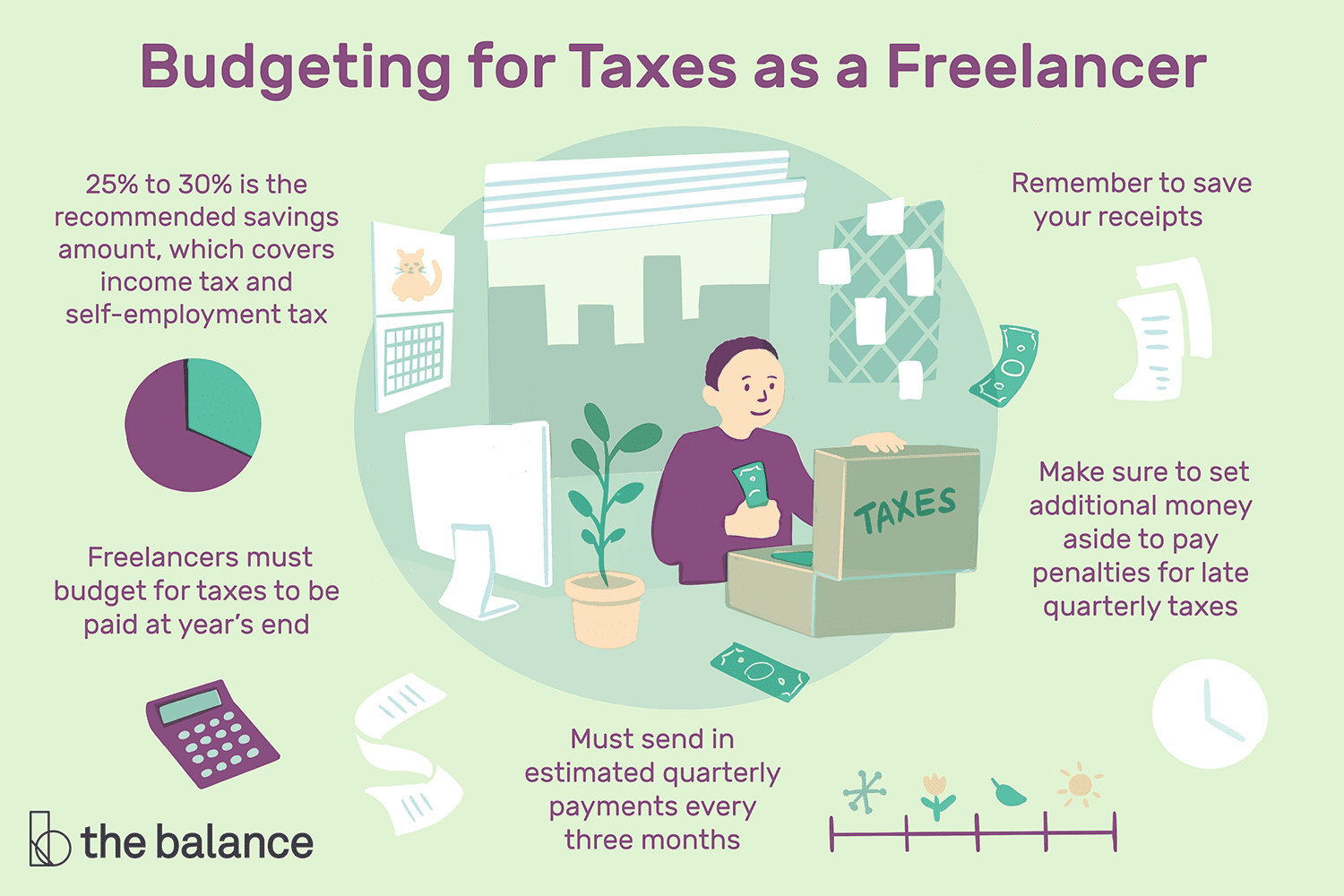
It can be a pretty boring subject, but if you’re a touring freelancer you need to pay attention! This year the tax deadline has been extended, hurrah. Although it’s likely there won’t be much to report, boo. Either way, we can look ahead to when we will all be earning again.
If you are self-employed or work through an LLC you’ll need to keep a portion of your income aside for taxes. If you’re on the payroll, someone else takes care of this for you, which seems like a bummer at the time as you get less money in your bank account, but it’s for your benefit come tax time (can you say refund!?).
A good rule of thumb is to put aside 30-35% of your income immediately before paying anything else. I suggest opening up a savings account and transferring the 30-35% anytime you get paid. Trust me when I say you will thank yourself come tax-filing time. Even if you pay taxes quarterly, you should act as if that 30-35% doesn’t exist in your account. Take it out, remove it, immediately!! Do not fall into the trap of thinking you will have the money when the time comes to pay the tax bill. Most people will have spent it without even realising. It happens so easily.
If you can get disciplined with your finances, you will have a stronger career. You will be able to manage your money and time better because you are on top of your financial game. You won’t have to take a gig you wouldn’t normally take just because you need to pay those taxes. This is the very first step to take to managing your finances well. It doesn’t need to feel intimidating, it’s just common sense and a little restraint and discipline (we all want to buy shiny things when we get paid!)
Of course, I could go down the route of “Pay yourself first” where you contribute to retirement accounts that are tax-deductible and then you account for your taxes after that, but I think that is next level and maybe for another blog altogether!
Once you have yourself covered with taxes, you can start looking to reduce your tax bill with deductions like travel and meals. Your accountant will be able to tell you what is and isn’t deductible, and yes you probably should have an accountant. If it sounds expensive, just know that the cost of the accountant is also deductible and they will probably reduce your tax bill by more than their fee.
So to sum up:
If you have any questions, I’d be happy to chat over email. Until the next time…
More on Taxes and Finances
Surviving This Tour Life: A Financial Guide
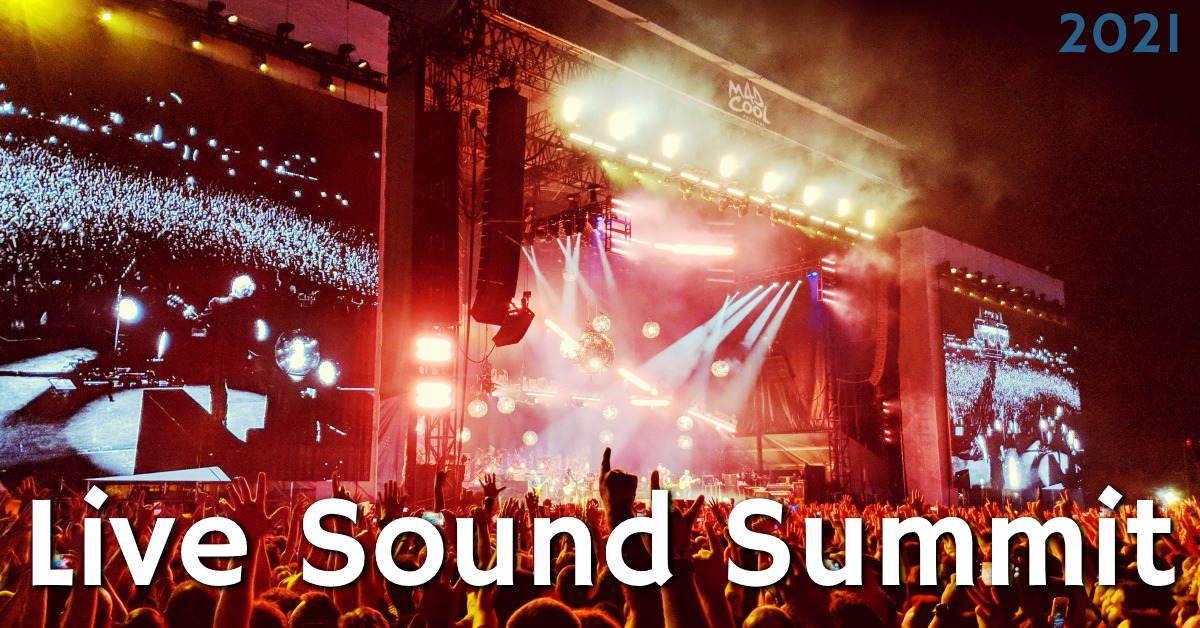
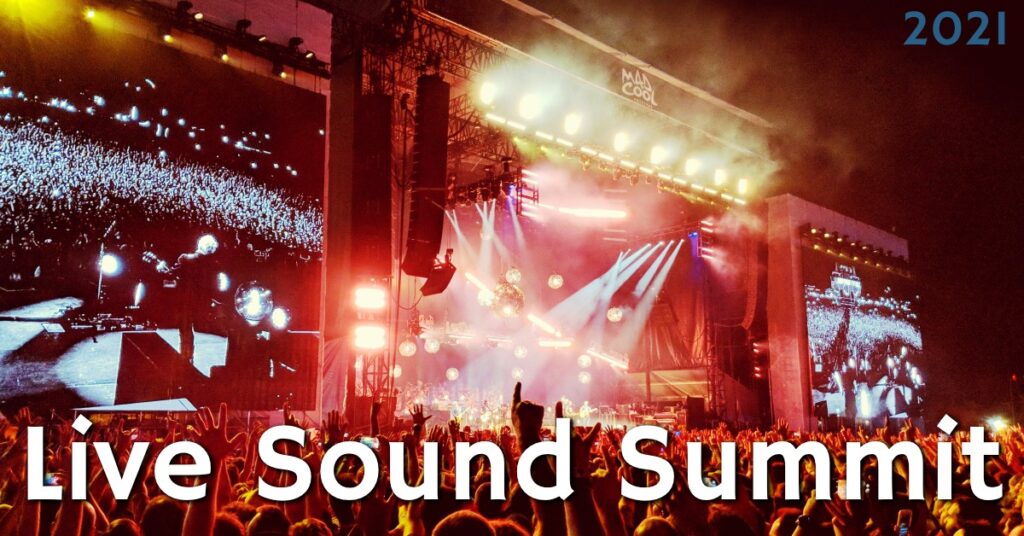
The Live Sound Summit is coming June 13- 15, 2021 – Virtual
Practical education and community building for live sound engineers and the pro audio industry. Three days of practical online training for live sound engineers and you have a chance to attend for free. SoundGirls has two passes available to attend and we will be raffling them off on May 30th. Enter here for your chance to win
Speakers include Dave Rat, Michelle Sabolchick Pettinato, Amanda Davis, Nathan Short, Nick Malgieri, Stephen Pavlik, Aleš Štefančič, Robert Scovill, Ken ‘Pooch’ Van Druten, Scott Adamson, Ken Newman, Joseph Willett, and more.
SoundGirls members can also attend and receive a 20% Discount. Register for Live Sound Summit Here
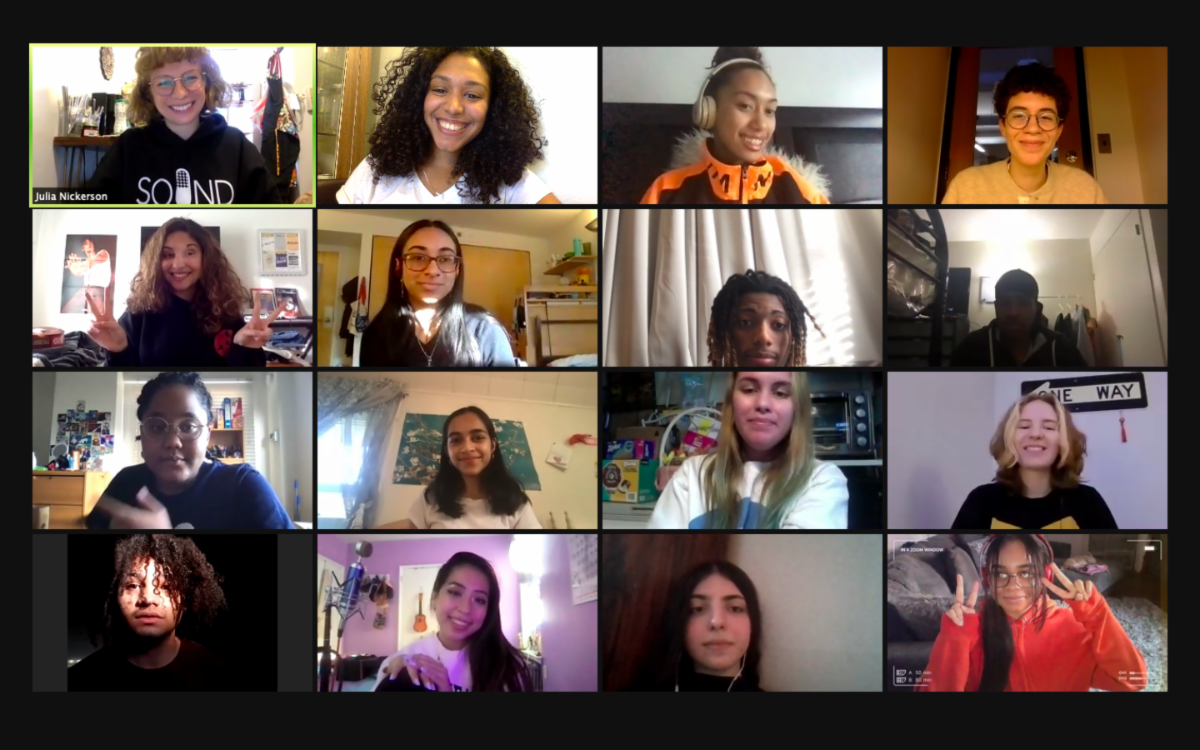
We talk a lot about the importance of mentorship in this industry, and in general. While I may have studied theatre sound design in college, I feel like so much of the learning I have done has been through mentors who have given me a chance to watch them work. Now that I have gotten a few years of career experience under my belt, it has been super rewarding for me to take up that mantle and start mentoring myself. So, for this blog, I want to talk about my own experience progressing from mentee to mentor.
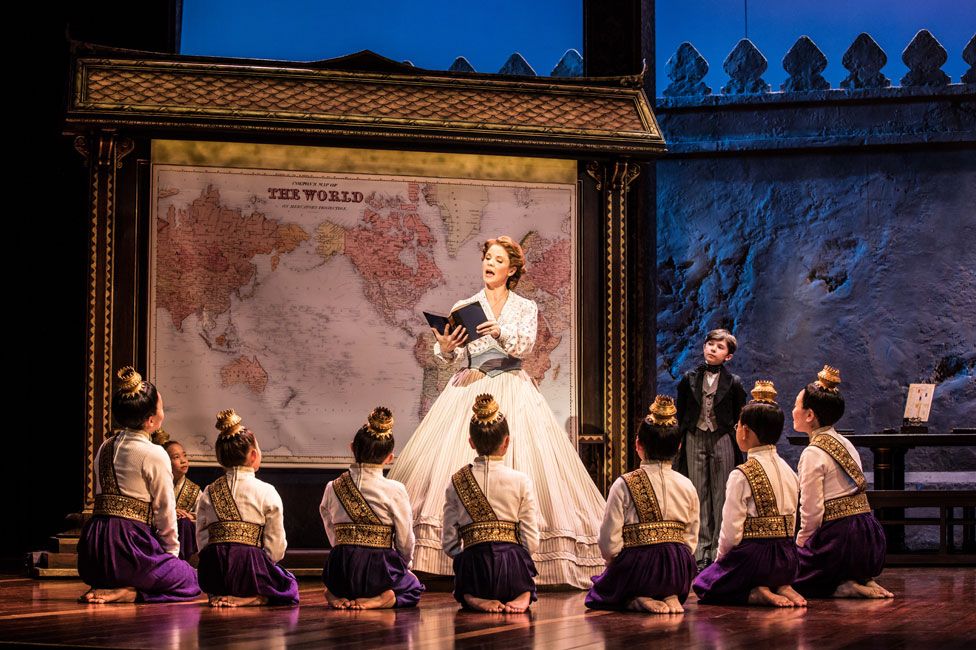
My first major mentor was Chris Evans, head of sound at the Benedum Center in downtown Pittsburgh. I was lucky enough to intern with him in the summer after my junior year of college, right when I was figuring out that I might want to mix musicals professionally. As Chris worked in an IATSE house (which meant that as a non-union worker there were limitations on what tasks I could do), my jobs included marking up scripts, making paperwork, and pulling sound effects. But mostly I just got to watch a brilliant mixer do his thing. I learned so much from just getting to be in the room with professionals and seeing how people behaved gave me a profound understanding of our industry. I returned to school that fall determined to channel all that I had learned from my new role model and be the best person I could be, not just the best mixer.
As I went on in my career, I collected a host of other mentors, some of whom probably don’t even know I think of them that way. I met folks through work, by shadowing them on shows, or by attending trade shows like USITT and AES. It can be awkward to approach someone when you have no footing in the business yet, but if I showed a genuine interest in what they do and a respect for their time and knowledge…the doors would magically open to me. And really, I can’t think of any other way that I could possibly have learned so much about the industry.
As I moved up in the ranks at my regional theatre gig, I kept in touch with mentors like Chris, but I also slowly began to mentor my apprentices. They each came in with different backgrounds, so while they all were hired to do the same job (be my A2 and assistant), it felt good to learn about each of them and try to tailor the experience to what they specifically wanted to learn about, whether it was mixing a musical, being a better A2, or doing cleaner paperwork. I could give them a safe place to learn on the job by handing over responsibilities a little at a time and share stories about when I had been in their shoes as an apprentice myself a few short years ago.
Even then, I still felt like I had so much to learn myself, but I was now squarely in the middle of the progression of my career. I wasn’t at the top yet (still nowhere near it!), but I was at least a few “rungs” up the ladder. I could now speak from personal experience about getting one’s first job, but also about getting a second job, or moving to a new city for work, or any of the other career hurdles that I had somehow managed to overcome. And as I continued to learn from mentors of my own, I could immediately pass that wisdom on, and hopefully save my mentees from falling into some of the pitfalls that I did, or that my mentors had during their early careers.
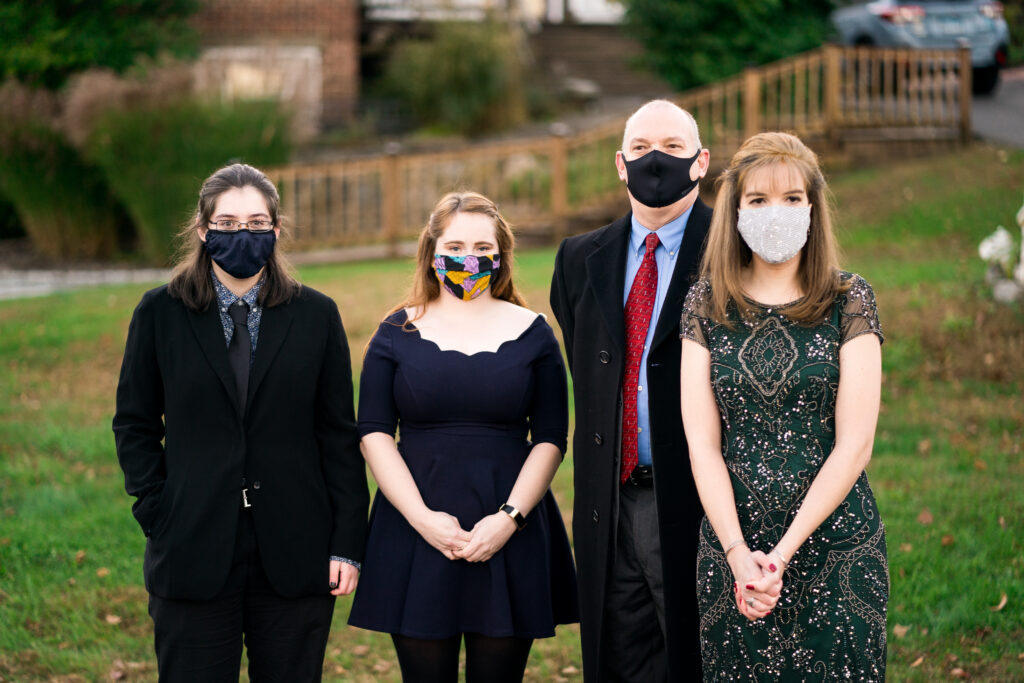
Once I finally started working in NYC, I felt like something shifted. I began to get approached by teachers to guest-lecture for their students, and by young people asking me questions about getting into theatre. At first, I approached these encounters with an imposter-syndrome-fueled dread. The way I saw it, I too was still making it up as I went! I had no idea how the NYC theatre scene worked, having just arrived there myself in January of 2019. I could give no advice on how to get a job, how shop builds worked…how could anyone think that I was a good example of someone to learn from? The first few times I mentored, I think this nervousness definitely showed! But, as I stood in front of my first group of students, I realized something. All you can give is your own story, and as “once in a lifetime/the stars aligned” as your career path seems to you, even sharing that information goes a long way to demystifying this world of theatre. And once I got a little better at doing it, I discovered I kind of liked it 🙂
After that first fateful experience guest-lecturing, I figured out my spiel a little bit. I kept inviting young aspiring mixers to shadow me at Rock of Ages, and did my best to connect with people who are underrepresented in NYC theatrical sound. However, it was during the pandemic that I really felt myself cross the proverbial bridge from mentee to mentor. I don’t know how it happened, but as we were all pivoting to life at home, suddenly people needed more guest lecturers in classes, or assignments to replace being on run crew for shows. And not only was there a need, but I suddenly had the time to fill it! The first months of 2020 I had been working multiple shows on top of each other basically nonstop (which by the way I DO NOT recommend!), and the effect was beginning to really deteriorate me physically and mentally. I wanted to continue being there for any young person I could, especially young women. And when the shutdown happened, I tried my best to keep paying it forward, even without being able to invite folks to shadow me at Front of House.
I’ve had a couple of great mentoring experiences this year. I took on my first SoundGirls mentee, zoomed with a young aspiring designer after this year’s virtual USITT, and most recently, did a structured 10 week program through Sound Thinking NYC where I helped my mentee complete a composition she wanted to work on. Again, my experience and career path didn’t always match my mentees exactly, but I found that I could help guide them in the right direction, or at least offer my takes on where they could go to learn more about the subjects that excited them. These experiences have been one of the absolute highlights of this time away from work for me, because no matter where my mentees were on their career journey, it was completely ok that none of us knew the answers! I would say things like, “well, I have no idea what job advice I can give right now, but here’s how it worked pre-pandemic.” The shared feeling of “making it up as we went” made me feel like I could be honest about my own uncertainties. And while at first, I worried that I was setting the wrong example by not having the answers, it turns out that my admitting what a mystery this line of work is made it ok for them to feel that way too.
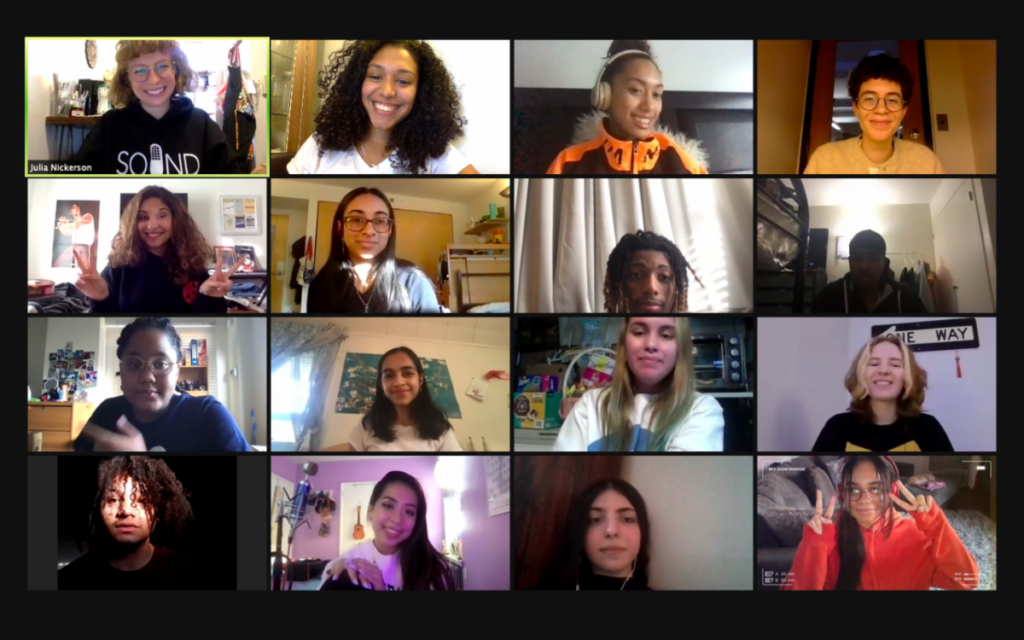
To me, this is the heart of mentoring, and what makes it different from just teaching. Sure, plenty of practical learning might happen by osmosis, but your job as a mentor is first and foremost to just do what you do, lead by example, and be honest about your struggles. We all want to come back to an industry that is more inclusive, more just, and more tolerant of people’s individual needs. And I believe that those of us who are mentors have a responsibility to keep opening doors in the industry to make that change happen for those coming up behind us.

Join SoundGirls for a webinar on hearing health with Audiologist Julie Glick, Musician Scott Simmons, and Sound Engineer Swaan Barat. Moderated by Lighting Designer Kille Knobel
This is your opportunity to ask questions about hearing health and get them answered and learn about how to protect your hearing. We will discuss different types of hearing loss and learn what options are available to you. We will also meet a musician and sound engineer who are willing to share their experiences with hearing loss and their careers.
 Kille Knobel is a graduate of Interlochen Center for the Arts and CalArts. She has been the LD for Pearl Jam for over 20 years and has toured with Cher, Bette Midler, Temple of the Dog, Janet Jackson, The Smashing Pumpkins, Soundgarden, NIN, and countless more.
Kille Knobel is a graduate of Interlochen Center for the Arts and CalArts. She has been the LD for Pearl Jam for over 20 years and has toured with Cher, Bette Midler, Temple of the Dog, Janet Jackson, The Smashing Pumpkins, Soundgarden, NIN, and countless more.
Kille has spent much of her career working special events, corporate shows, and television. When she’s at home in Los Angeles, she can be found working at The Jimmy Kimmel Show and wrangling her three sons – 16, 13, & 12. Two of Kille’s sons were born with congenital sensorineural hearing loss and wear hearing aids. Kille has become an unplanned expert in pediatric hearing loss and special education having spent years learning to effectively advocate and navigate the resources and technology needed to best support her kids.
Bridging her personal life and working in a high-risk profession for hearing damage, Kille is passionate about promoting better education and awareness surround hearing health in our industry.
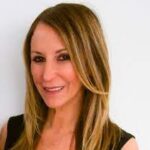 Dr. Glick has first introduced to custom in-ear monitors and musicians earplugs twenty years ago when she started her career in private practice in Beverly Hills, California, and is thrilled to have come full circle after spending time gaining a myriad of experiences in Chicago and New York City. Musicians Hearing Health
Dr. Glick has first introduced to custom in-ear monitors and musicians earplugs twenty years ago when she started her career in private practice in Beverly Hills, California, and is thrilled to have come full circle after spending time gaining a myriad of experiences in Chicago and New York City. Musicians Hearing Health
Her passion for music and commitment to the field of audiology led her to recognize that the optimization of the live performances of musicians and hearing conservation was a niche she wanted to be involved in from the very beginning. Over the past twenty years, Julie has spent invaluable time with monitor/sound engineers and has been backstage and in rehearsal studios with musicians of all genres. She has also worked as an audiologist for two years at Sensaphonics Hearing Conservation in Chicago. Through all of these experiences, she has gained great insight and appreciation for all the technical details that go into live musical performances and how important hearing and hearing conservation is to not only musicians but to the fans as well. Dr. Glick’s knowledge and technical expertise in sound, hearing, and hearing conservation make her a valuable asset to the music community.
Dr. Glick received her Bachelor of Arts degree in Speech and Hearing Science from The Ohio State University, Master of Science in Communicative Disorders from California State University, Northridge, and Doctor of Audiology from the Pennsylvania College of Optometry, School of Audiology. Dr. Glick is a licensed Audiologist and Hearing Instrument Dispenser in the states of California and New York and a Fellow of the American Academy of Audiology.
 Swann has always been passionate about live music and at age 16 she decided to become a sound engineer. After graduating from an electrical engineering program in Poitiers, France, Swann moved to Vancouver, BC, and studied Audio Engineering and Production. A freelance sound technician, Swann has worked at most Vancouver venues, including 5 years as the head technician at the Biltmore Cabaret and more recently as the technical director at the Fox Cabaret. She was also a live sound instructor at Nimbus School of Recording and Media for 6 years. As both a tour manager and a front-of-house technician, she has toured all over North America and Europe during the past decade.
Swann has always been passionate about live music and at age 16 she decided to become a sound engineer. After graduating from an electrical engineering program in Poitiers, France, Swann moved to Vancouver, BC, and studied Audio Engineering and Production. A freelance sound technician, Swann has worked at most Vancouver venues, including 5 years as the head technician at the Biltmore Cabaret and more recently as the technical director at the Fox Cabaret. She was also a live sound instructor at Nimbus School of Recording and Media for 6 years. As both a tour manager and a front-of-house technician, she has toured all over North America and Europe during the past decade.
In 2016, she was diagnosed with a genetic condition causing progressive hearing loss and tinnitus. She has been wearing hearing aids since then and that allowed her to keep doing her multiple jobs in the live sound industry.
I’m a sound technician. Losing my hearing was devastating
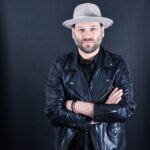 Scott Simons’ career as a musician started at the age of 15 when his father, a local news weatherman, hired him to write the 6 o’clock new theme music for WBOY-TV. After seeing his name credited at the end of every newscast, Scott knew he wanted to write music for a living. Playing keyboards in cover bands as the only under 18 kid in bars and composing jingles for local radio and TV stations led to him studying music at West Virginia University.
Scott Simons’ career as a musician started at the age of 15 when his father, a local news weatherman, hired him to write the 6 o’clock new theme music for WBOY-TV. After seeing his name credited at the end of every newscast, Scott knew he wanted to write music for a living. Playing keyboards in cover bands as the only under 18 kid in bars and composing jingles for local radio and TV stations led to him studying music at West Virginia University.
After receiving his B.A. in Music Composition, Scott Simons spent the next 10 years touring in several 15 passenger-cargo vans while fronting original indie-pop band The Argument. To make ends meet while pursuing his dream, Scott taught pre-school through 8th-grade music, private piano lessons and was a substitute band teacher. The Argument toured the country, performed on public radio’s “Mountain Stage” twice, and was named as one of the “Top Ten Unsigned Bands in America” by the American Music Awards. When the last van broke down and the band broke up, Simons began writing and producing for other artists which lead to frequent writing trips to Los Angeles and Nashville and his first co-publishing deal with Bug Music. In 2006, his self-produced internet smash cover of Rhianna’s “Umbrella” was added to many radio station rotations all over the US and overseas, received praise on countless internet pop culture sites such as TMZ.com and amassed millions of plays on MySpace, YouTube and other social media.
In 2008, Scott made the move west to LA and has been keeping busy as a writer, performer, and recording artist ever since. As a songwriter and producer, Simons has worked with many writers and artists all over the world. Last year, his cowrite “Faithful” was a Latin American hit with Mexican-American pop artist Alex Hoyer. His recent collaboration with Italian pop DJ group Daddy’s Groove “Stellar” hit #1 on the Italian Dance Music charts. Scott also co-wrote “Another Break Up Song” with up-and-coming soul singer songwriter Allen Stone. Other notable song placements include dance music legends Dirty Vegas, Drake Bell (Nickelodeon’s “Drake & Josh), Brandon and Leah (“Keeping Up With The Kardashians” ), Eurovision Contest winner Lena, Holland Idol winner Lisa Lois and broadway actress Shoshana Bean from the musical “Wicked”.
As a performer, Scott has worked behind-the-scenes and occasionally in front of the camera for 9 seasons on America’s Got Talent as Assistant Music Director after doing all 3 seasons of The X Factor (USA). He was also the Music Director for seasons 3 and 4 of Little Big Shots on NBC as well as for Nickelodeon actor-turned-musician Drake Bell, X Factor finalist Chris Rene, The Voice finalist Chris Mann and American Idol finalist Megan Joy. He has played keyboards for Leona Lewis, Aimee Mann, Lucy Woodward, Robert Schwartzman, Toby Lightman and has also appeared on The Late Late Show with Craig Ferguson, Anderson Cooper Live, Ellen and The Brazil Nickelodeon Kids’ Choice Awards. Simons also sings the Emmy-nominated theme song for Nickelodeon’s “Paw Patrol”, Netflix/Dreamworks “Veggie Tales in the House” and Esquire Network’s “Lucky Bastards”.
Scott’s original project is TeamMate, a two-piece band with his ex-girlfriend and drummer Dani Buncher. The duo spent the last few years touring the United States supporting OneRepublic, Bleachers, and Skylar Grey and has been featured on Huffington Post, KROQ-FM, KIIS-FM and The Advocate. On TV, TeamMate’s music has been heard on ESPN’s Wimbledon coverage, NBC’s Sunday Night Football, Freeform, the CW in various shows and commercials. Rapper Wiz Khalifa also sampled TeamMate’s song “LA Winter” for the first track of his last full-length album “O.N.I.F.C.”.
Scott currently teaches Songwriting at Point Blank Music School in Los Angeles in addition to private songwriting and piano lessons, consultation and is working with West Virginia University College of Creative Arts to mentor graduate students entering the music industry.